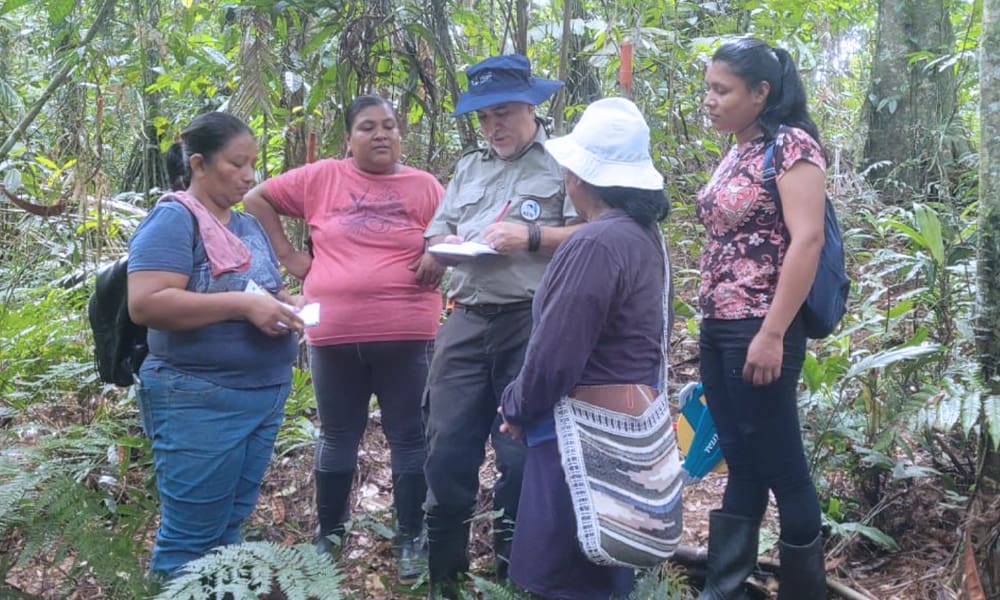A group of indigenous women, delegates from the Cabecares Kábata Könana Indigenous Women’s Association, has been developing the first project of Biocentric Restoration of Indigenous Peoples of Costa Rica since November 2023.
The plan, coordinated with officials from the National System of Conservation Areas (SINAC), is sponsored by the Food and Agriculture Organization of the United Nations (FAO) and seeks to restore ecosystems.
“This initiative is very meaningful because it respects the way we work in our territory, honoring our five traditional planting categories and our spirituality,” said Heylin Reyes, of the Cabecares Kábata Könana Indigenous Women’s Association.
The implementation of the biocentric restoration plan involves the development of life schools, participatory processes, construction of nurseries, and planting days with native species having ecosystemic, spiritual, nutritional, and medicinal value.
SINAC officials explained that this program aims to restore degraded areas in indigenous communities of Talamanca, including Los Ángeles, San Miguel, San Vicente, Sibujú, Monte Sión, Progreso, China Kichá, Gavilán Canta, and Orochico within the Cabecar Indigenous Territory.
“It will be the first National Biocentric Restoration Plan on the planet, funded by FAO with technical assistance from SINAC,” said Franz Tattenbach Capra, Minister of Environment and Energy.
The idea is to restore degraded lands in Indigenous Peoples’ territories based on their cosmogony, combining traditional knowledge with new restoration techniques. This approach aims to recover biodiversity in areas with spiritual and sacred significance to indigenous peoples, contributing to climate and biodiversity objectives.
SINAC announced yesterday the execution of this project, as part of the commemoration of the Day of the Costa Rican Indigenous Person, underscoring the value and key role played by indigenous peoples in the conservation of biodiversity.
“We value and understand that indigenous peoples are our allies in the conservation of wildlife, watersheds, and water systems, forest resources, and Protected Areas. Their ancestral practices and cultural heritage are akin to the conservation of nature,” said David Chavarría, Executive Director of SINAC.






